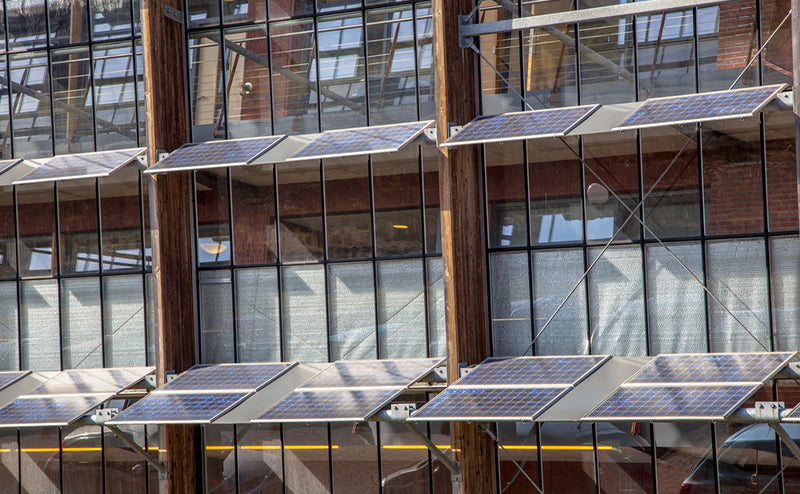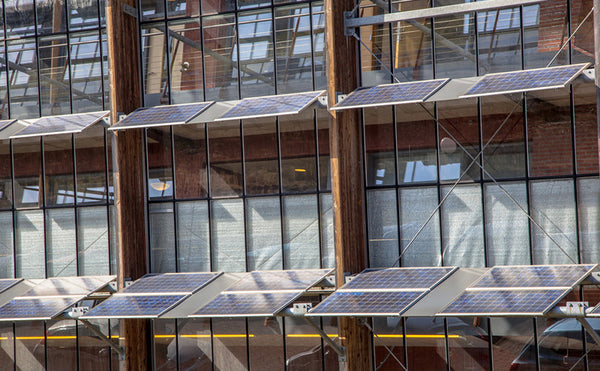

Many people who start to switch to solar may confused about the problem: Do I choose a solar system or a solar generator? What`s the difference between them and what`s the better? Today, in this article, we`re exploring these two similar technologies, their fundamental difference and what they mean to you as you start generating your own clean, renewable power.
What is a solar generator?
A solar generator converts the sun’s energy into electricity that you can use immediately or you can store for later use. The term solar generator generally refers to smaller, more portable systems. You can set these up and take them down as needed or rearrange their position for optimal sun exposure. Think about them as you would a typical, gasoline-powered portable generator.
How does a solar system differ from a solar generator?
A solar system relies on many of the same principles as a solar generator, but with some key differences. Like generators, solar systems convert the sun’s energy into usable electricity that’s either used or stored in a battery bank. But unlike generators, solar systems are dedicated systems that harness sun power. This might include panels you install directly on a home, RV, or boat, or It could mean portable panels that feed into a full-fledged system.
So how do these two variations on solar technology stack up, and which one is right for you? We’ve broken down the differences in five key areas.
Usage
How you’ll use the system will be an important determining factor when weighing solar generators vs. solar systems. Solar generators are typically reasonably portable, as you can stow them away and bring them out as needed. This means you can even bring your generator with you on the go, if desired, which makes it a great option if you are going to be needing solar power in multiple portable applications.
Solar systems, however, involve more permanent installations, even if the panels themselves may be portable. You’ll connect them to your home, RV, or boat’s electrical system at all times. And you won’t need to set things up again when you need the system’s power. The benefit here is that the system is always operating, even when on the move, and will provide more power overall per the same size panels.
Battery capacity
Solar generators have a small battery that allows them to be portable, something that may be handy when you need to be able to carry power out to a location. Solar generators don’t require you to use all of the energy they generate immediately. However, the battery capacity built-in to the generator is typically small, and in most cases, the capacity isn’t expandable. This leaves you unable to store significant electricity for use during dark hours. Solar systems don’t run into this issue. As they’re broken into various components, you can expand your system with multiple batteries for extra storage. Generally speaking, your budget is the only limit.
Initial investment
Your budget may be a determining factor between solar generators and traditional solar systems. While solar generators can easily cost $1,000 or more, you can find some low-wattage models for several hundred dollars. These may be enough for you to get started and power a few devices or appliances.Traditional solar systems may be more powerful, but they’re typically more expensive, with costs for parts and installation ranging well into the thousands.
Recharging
Solar generators only recharge when they’re out in the sun, so you have to be the one to remember to set it out there to recharge. And depending on the size of the panels, the charging of the internal battery may be a slow process. If the system is put away for travel, no power will be generated. On the other hand, solar systems benefit from their permanent installation. You set them up to use and then receive power without any thought from you. That means that as long as your system operates correctly, your backup power should be waiting when you need it.
Maintenance
All solar panels require inspection, primarily to keep them clean and ensure no cracks or other issues threaten their function. However, solar system panels might require more maintenance and are more cumbersome to inspect and maintain–especially those that are mounted permanently. The constant exposure to the elements is the culprit here, as opposed to solar generators that you store or cover when not in use. The exception to this is portable solar panels that connect to a full system but that you can set up or take down as needed. Solar generators also have the edge when it comes to ease of maintenance as you can move them as desired. Permanently installed systems mean climbing to wherever you’d mounted your panels.
Solar generators and solar systems each provide an amazing way to generate clean, renewable energy straight from sunlight. But the two also have important differences in usage, storage, cost, maintenance, and more. While solar generators have their uses, most homeowners, boaters, or RVers will find the always-ready, expandable power of a true solar system is a great power choice. It’s best both for day-to-day extra electricity and backup juice when the power is out.
We know that building or upgrading an electrical system can be overwhelming, so we’re here to help. Contact Wuzeck today to get help!